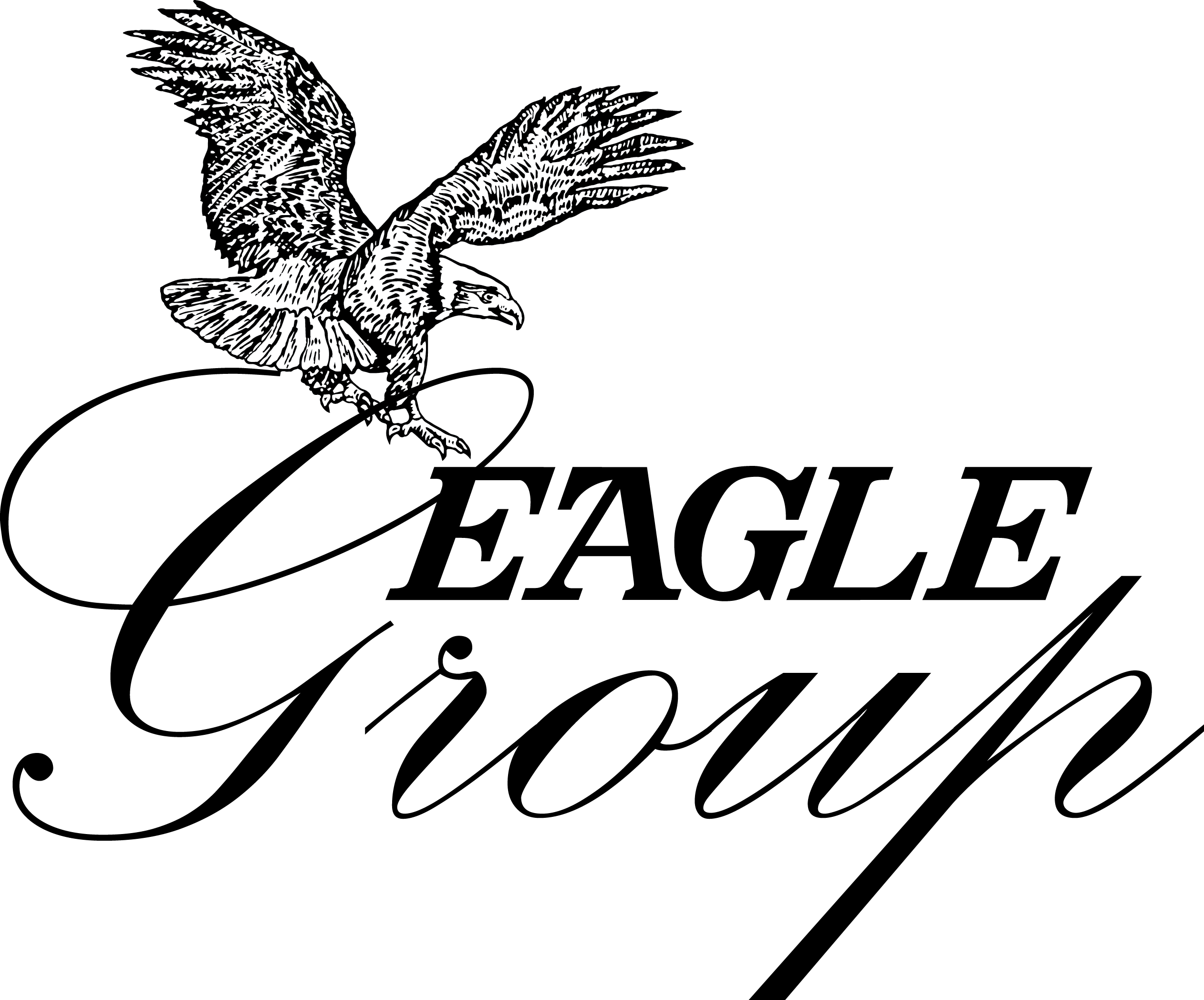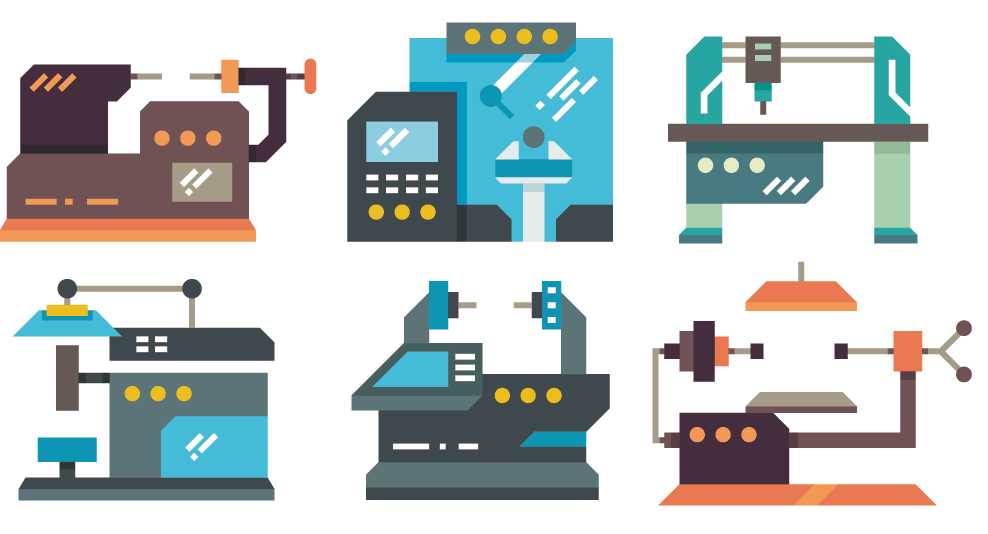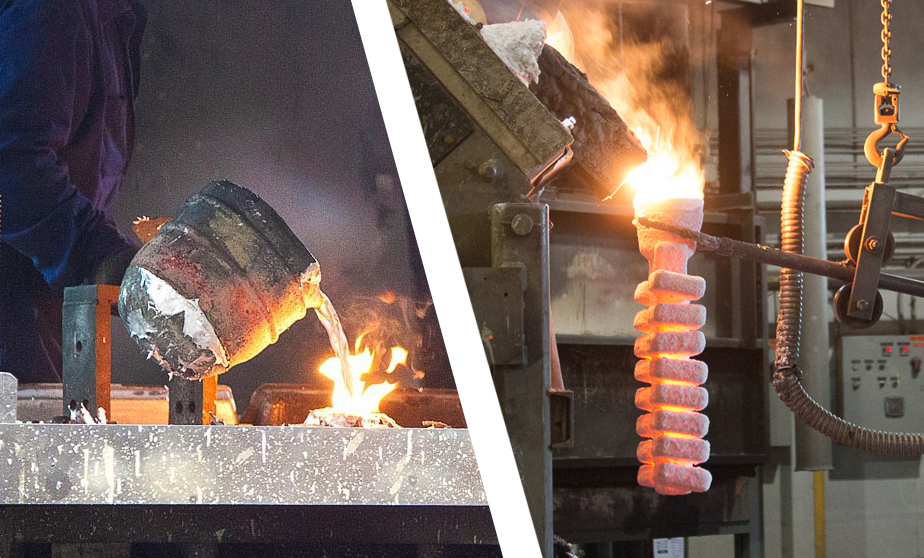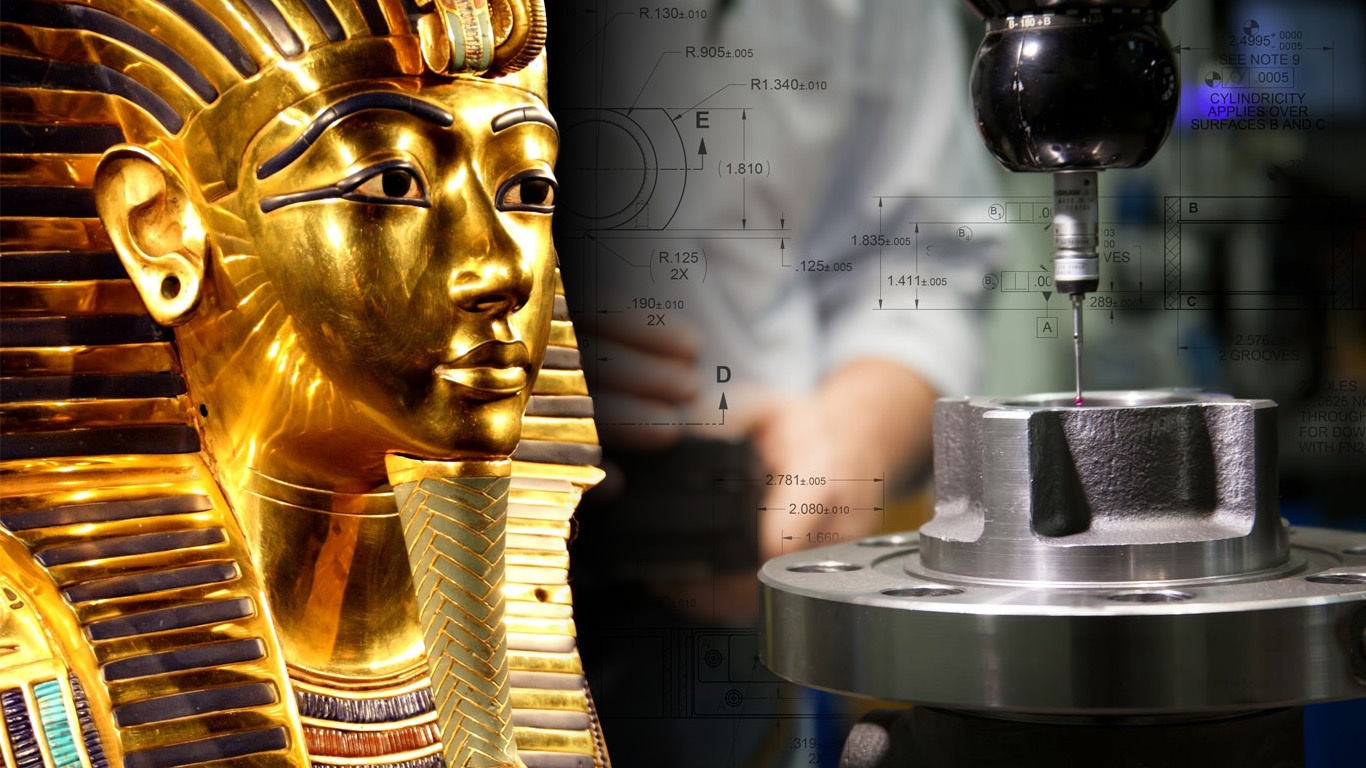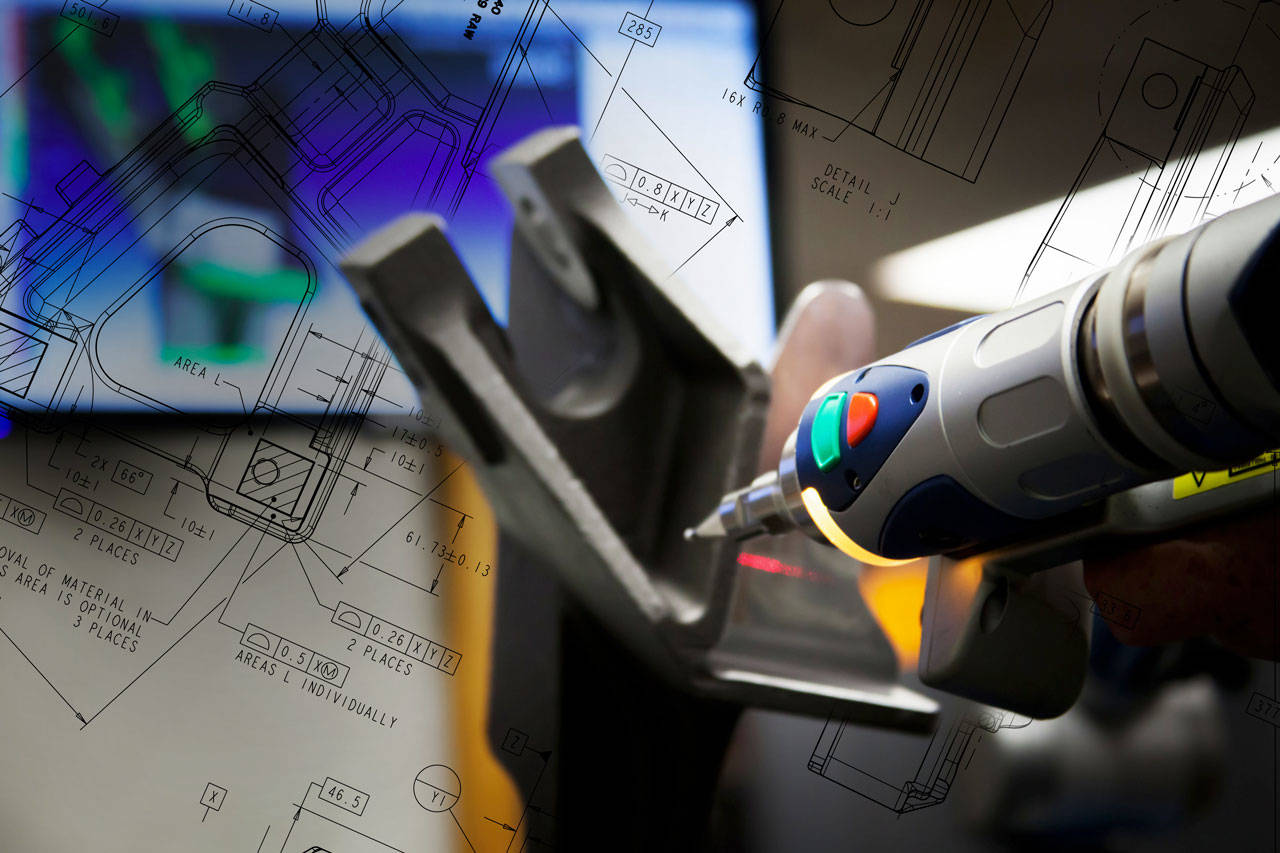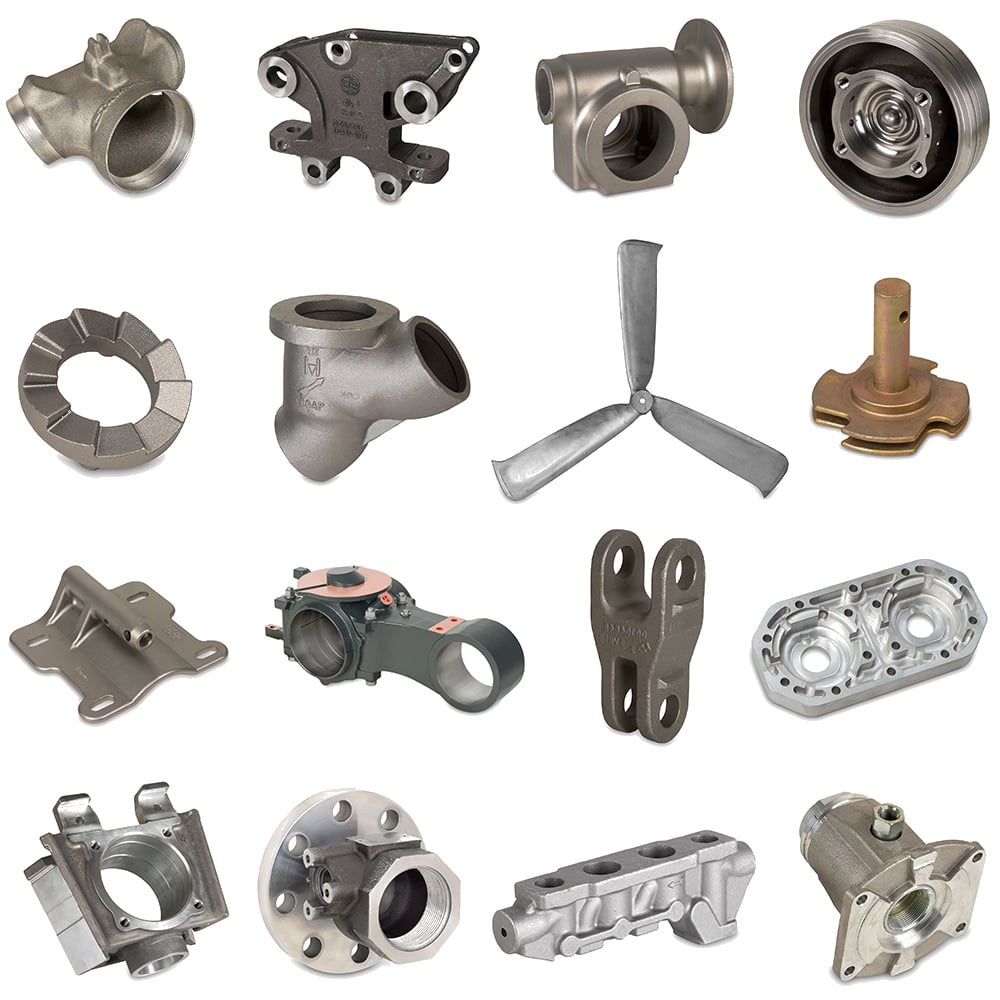What Precision Machine Shops Do: Introduction
Our new blog series What Precision Machine Shops Do focuses on the processes, equipment and knowledge involved in modern machining. We'll take a close look at key metal removal techniques like milling, turning, facing, boring and tapping, along with the many products and parts that work as a result of these processes.
For the most part, we'll be discussing CNC machining, or Computer Numerical Control machining. For a brief introduction to CNC, explaining how it developed and how it differs from non-CNC machining, check out our Introduction to CNC Machining blog post.
Tags: Machining, CNC Machining, Eagle CNC, What Precision Machine Shops Do
Aluminum Casting vs. Steel Casting: Choosing the Right Alloy for Your Cast Products
In modern metalcasting, steel and aluminum are two contenders for the top material of choice. Thousands of manufacturers around the world rely on both metals to produce strong, light and corrosion-resistant metal parts and products.
You'll find hundreds of different grades and alloys for both steel and aluminum, and each has its specific advantages and disadvantages. For this comparison, we'll focus on differences between aluminum and steel alloys in general, rather than zooming in on differences between specific alloys.
Tags: Metalcasting, Machining, Aluminum Casting, Aluminum, Materials
Introduction to CNC Machining
This article was updated on July 8, 2025.
CNC Machining is often the last step in metal manufacturing, or sometimes the only process involved. Compared to other metalworking techniques, CNC machining is capable of meeting the tightest tolerances, and producing the most accurate, precise products over and over again.
Tags: Machining, CNC Machining, Eagle CNC
Measuring Standards: From Pharaohs' Forearms to the Speed of Light
Modern manufacturing wouldn't be possible without rigorous standards of measurement, along with sophisticated tools and techniques to help us measure tools, workpieces and finished products.
CNC machining is a prime example of the practical uses of modern measuring, or metrology. In metal-based manufacturing, CNC machining is often the last process before a part is delivered. Without incredibly accurate and precise ways to measure and cut, many of the metal products we take for granted would be impossible to produce.
The history of measurement is the story of how human civilization strove to find new ways to measure accurately, and it all leads up to modern metrology.
Tags: Machining, CNC Machining, Metrology, History
7 Essential Metrology Tools for Modern CNC Machine Shops
Metrology is the science of measurement. In CNC machining, principles of metrology need to be applied throughout the production process to ensure that each part is machined to the right size and shape, in accordance with specified tolerances.
It’s simple enough to take a ruler or a measuring tape and mark out inches or millimeters. But measuring dimensions of CNC machined parts – many with tolerances tighter than +/- .001 inch – is a whole other ball game. When you’re dealing with measurements that small, you need to have sophisticated measuring tools, and the knowledge to use them.
Tags: Machining, CNC Machining, Metrology
3 Quick Tips for Buying Cast Parts
Whether you're looking to produce a new product or save money on products you're already manufacturing, cast parts can be a great option. Metalcasting has been around for over 5,000 years, and today's processes, along with cnc machining, can produce just about any part imaginable.
Tags: Metalcasting, Machining, Buyer's Guide, Tips
